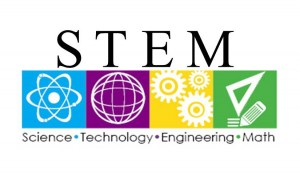Intertech Announces STEM Scholarship (Post 2 of 2)
 Second of two blog posts in this series
Second of two blog posts in this series
Last time I shared news about Intertech’s new philanthropic focus on science and technology learning. I also mentioned the new $2,500 scholarship being funded by the Intertech Foundation for an aspiring computer science freshman college student. And I promised to delve more deeply into the topic of computer science careers.
First, some facts:
- Nine out of the 10 “Best Jobs for 2014” fell into the STEM category (science, technology, engineering and math), according to CareerCast.com and JobsRated.com
- Software engineer and computer systems analyst ranked 7th and 8th with midlevel income listed as $93,350 and $79,680 respectively. Among the reasons for their high rank: low stress, great work environment and positive job outlook.
- If these jobs are among the best paying, with the lowest stress and strongest job outlook, why is there a shortage of qualified programmers for companies like Intertech to hire?
Now for the truly weird part, at least to me! According to recent news reports, there is no lack of qualified people to fill these jobs—software engineers in particular.
“What STEM Shortage?”, an article in the National Review (5/20/14), states that “the sector isn’t seeing wage growth and has more graduates than jobs.” This article cites reports by the Economic Policy Institute, The RAND Corporation, the Urban Institute and the National Research Council. The Atlantic magazine also has a piece this month, “The Myth of the Science and Engineering Shortage,” that bears checking out.
It’s difficult to argue with such formidable sources, but it’s also hardly a secret that there’s a shortage of outstanding software engineers in Minnesota. Intertech employs several full-time recruiters who beat the proverbial bushes with vigor to find and engage them. We also work hard to be a great place to work and have received three awards this year alone validating our efforts. But still we struggle to find enough high caliber people to fill these excellent positions.
Could the disconnect be due to our high expectations? Simply having a degree in a STEM-related field does not automatically qualify someone to work here. I suspect this is true at other companies in Minnesota as well. This is why our new scholarship has some unusual criteria for someone interested in computer science, including:
- A one-page essay describing how the student hopes to participate in the professional software development industry.
- Two letters of recommendation, including at least one from a science or math teacher who knows the student well.
- A resume describing academic, extracurricular and employment experience.
- Description of any involvement in the FIRST Robotics program (not a requirement but it does mean extra points in our scoring process).
Why all the hoops if the student has good grades, a strong GPA and interest in programming? We want to cultivate well-rounded professionals who not only understand how to code, but also can communicate verbally and in writing. We want to hire people who can work with others and are not afraid to raise their hand and get involved. In other words, we want leaders with strong technical skills.
That’s a tall order but if we don’t set the bar high, who will? Some have opined that cultivating U.S. students with strong technology and leadership skills not only has implications for workforce development, but also for national security concerns and immigration policy. I’ll leave those global issues to the think-tank leaders to sort out, even as I remain passionately committed to the development of the next generation of technology leaders. Our clients expect the best and we intend to keep delivering it!